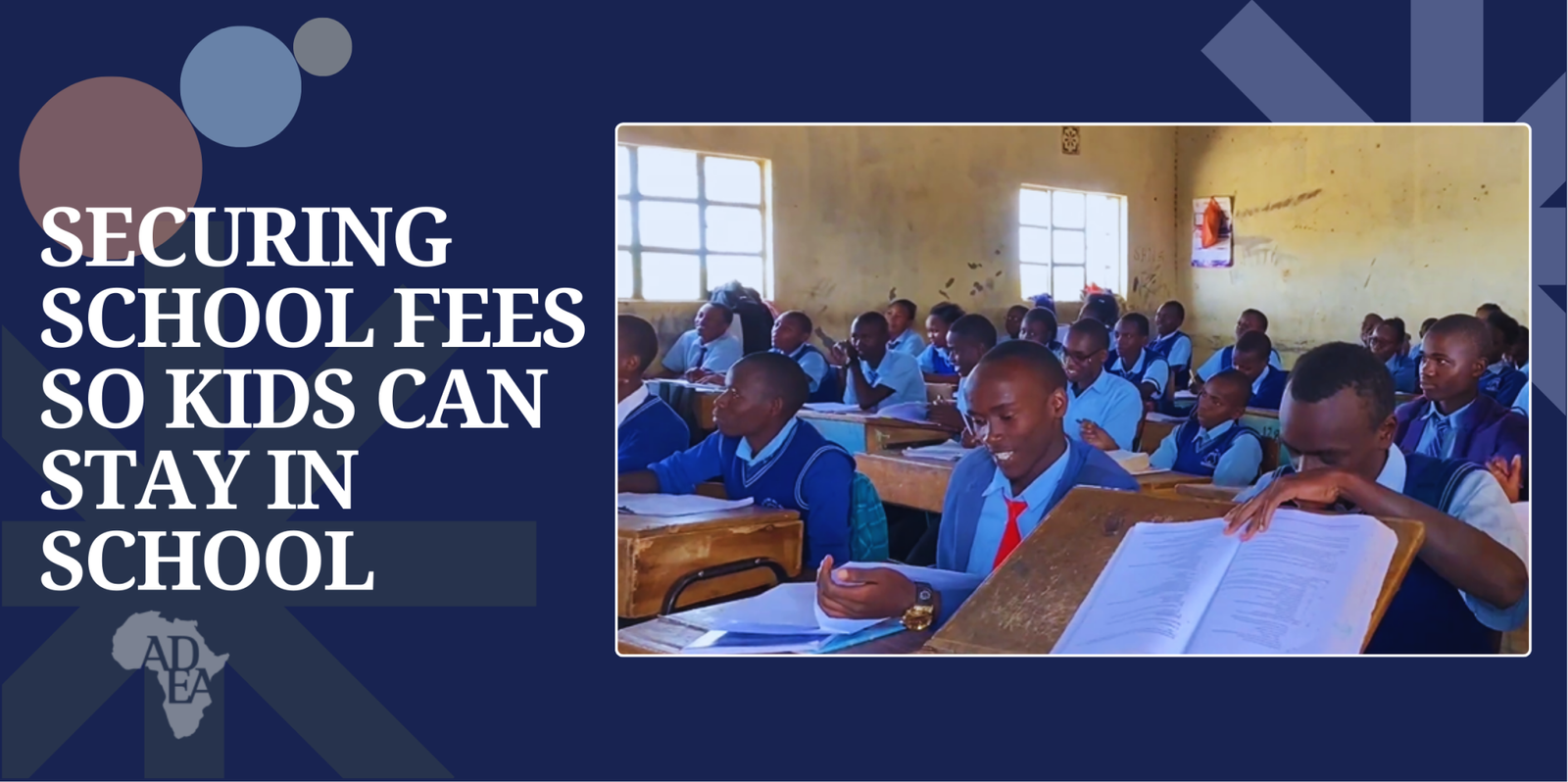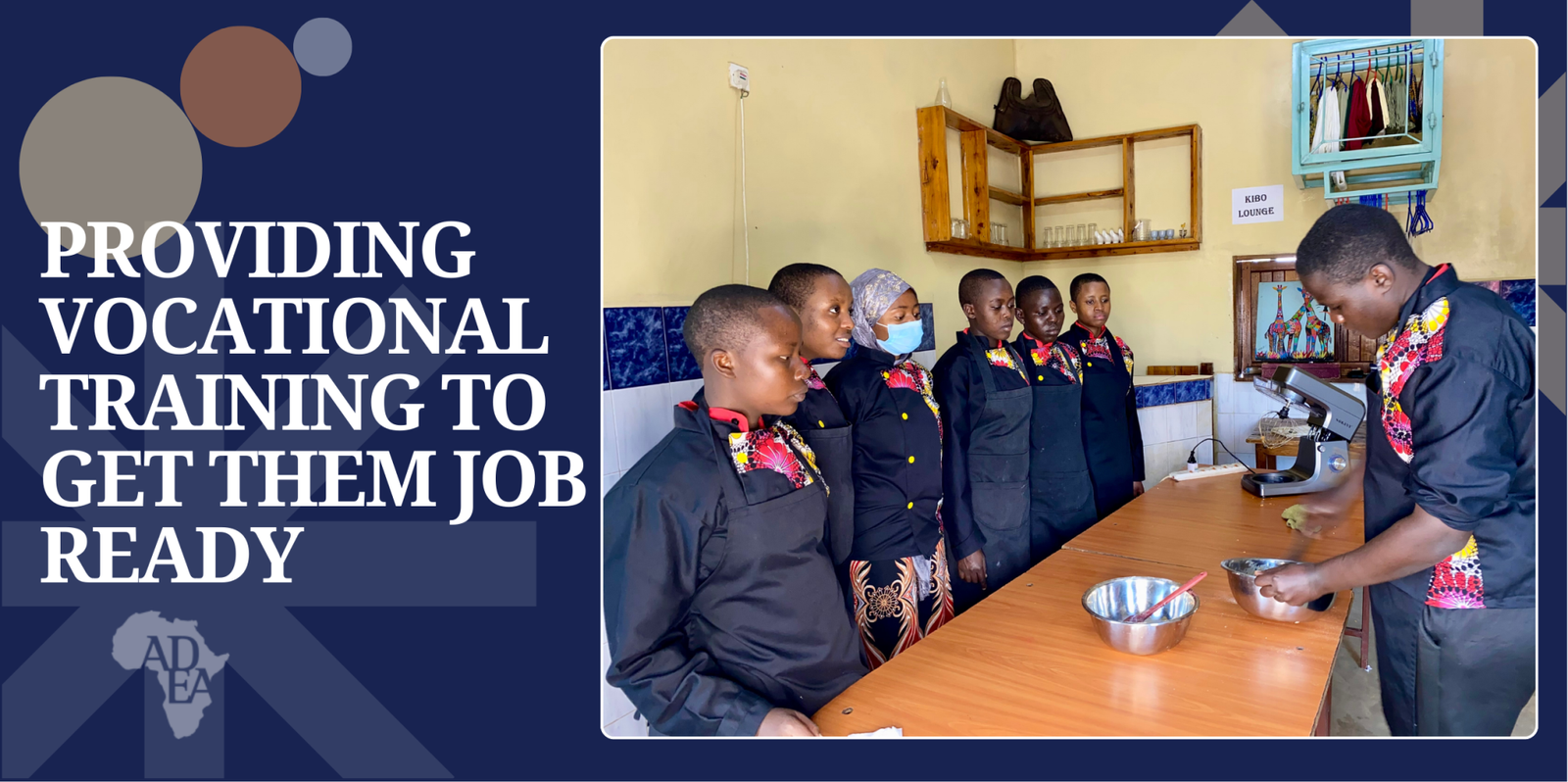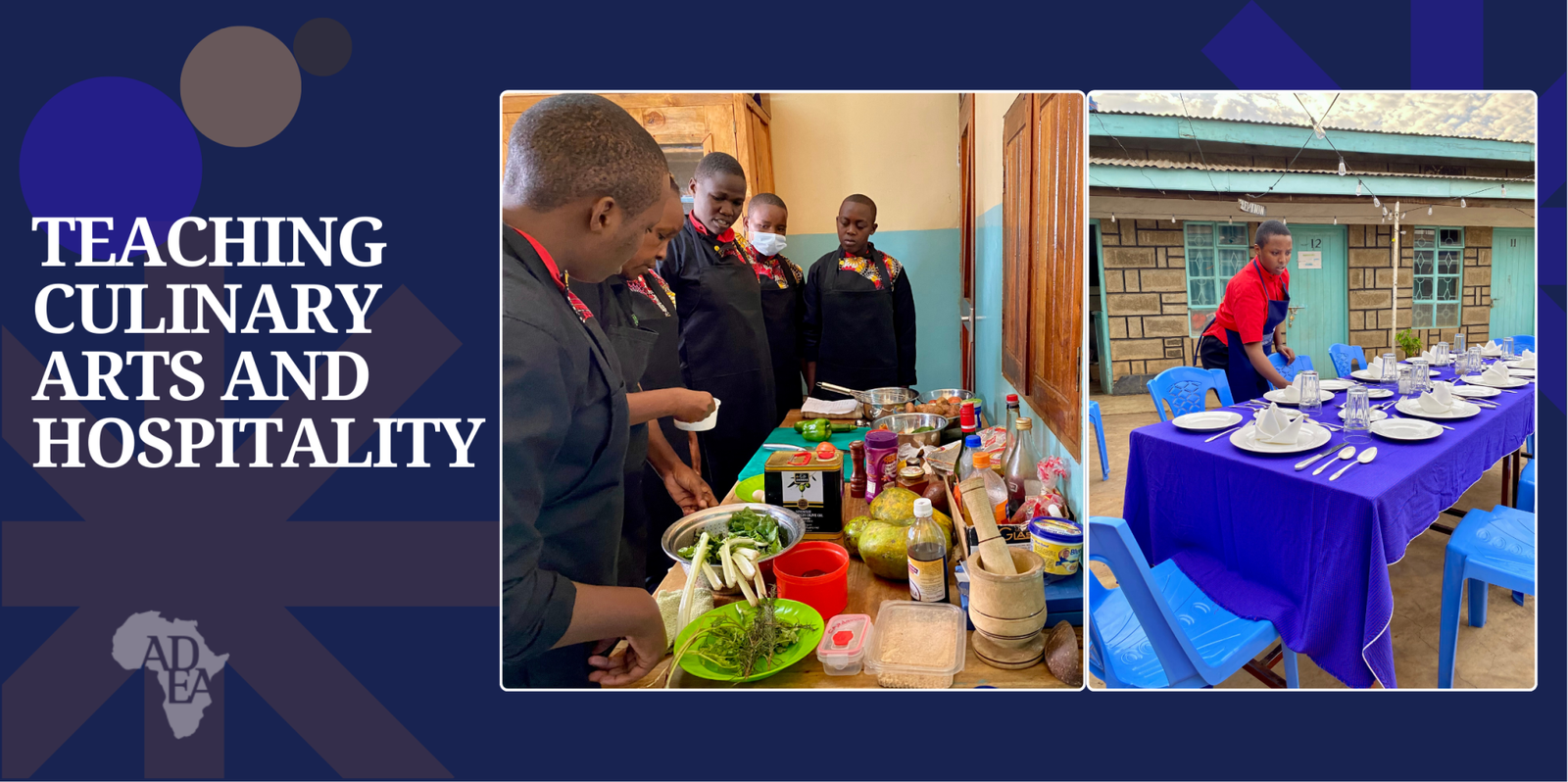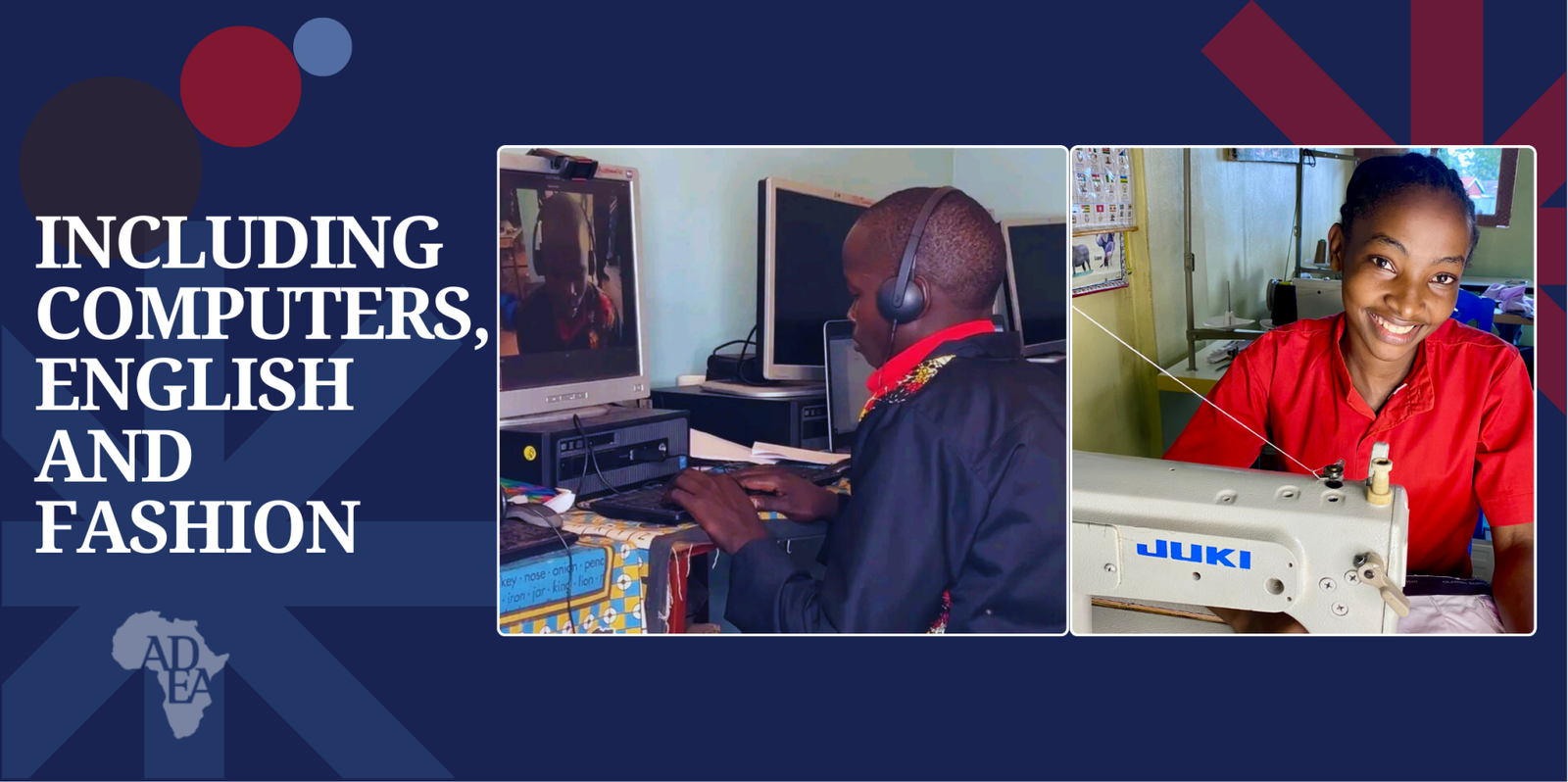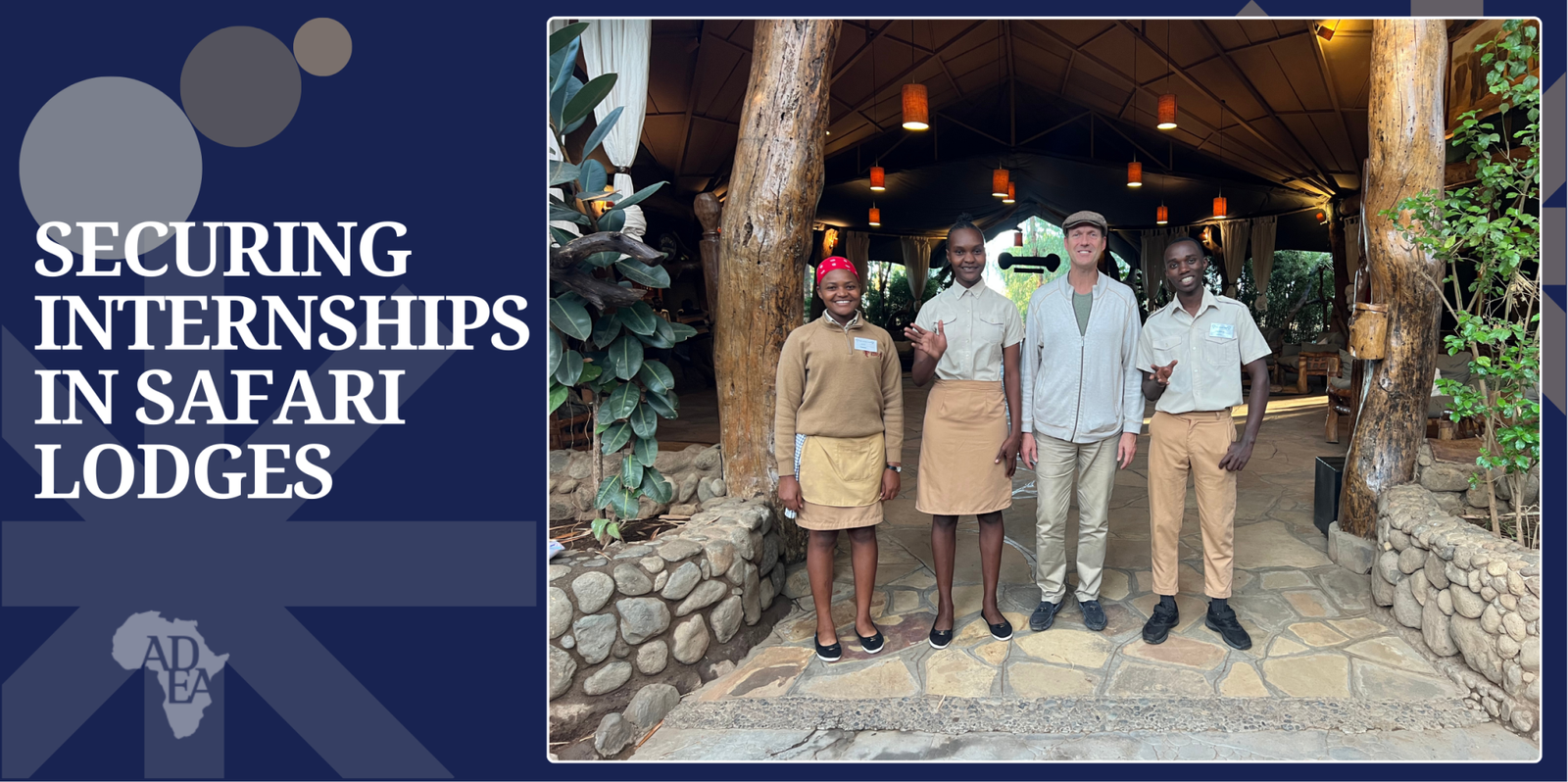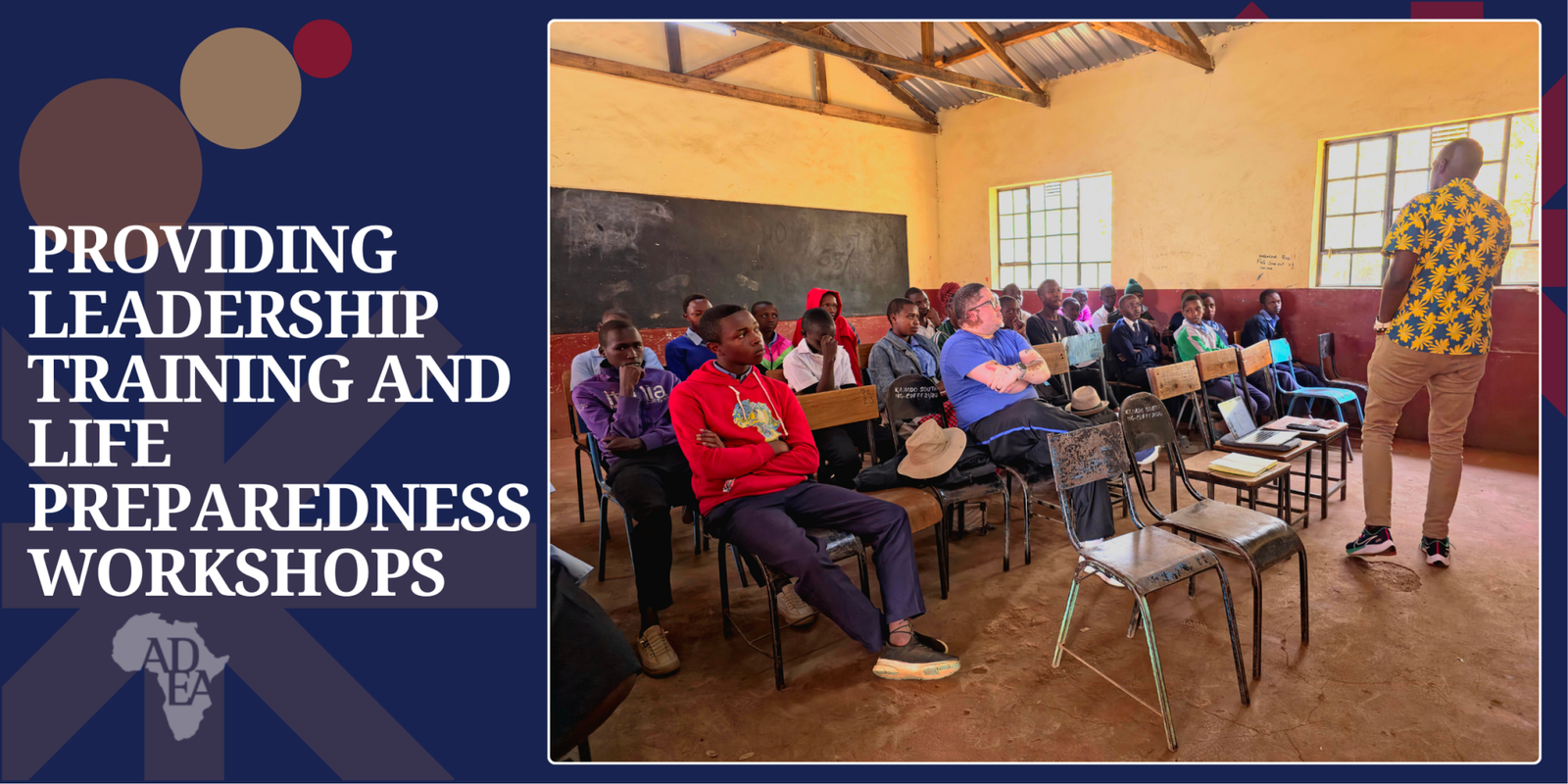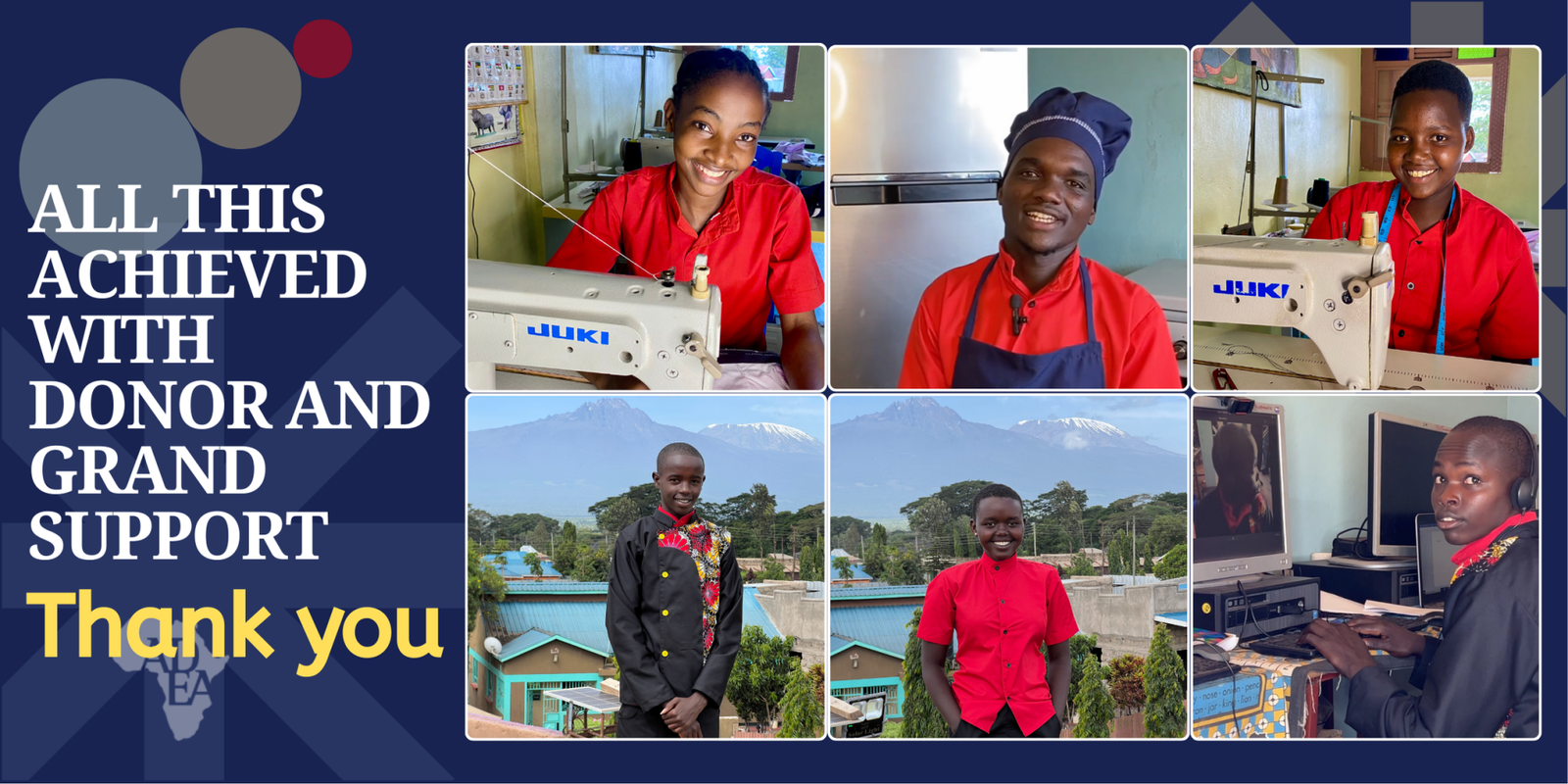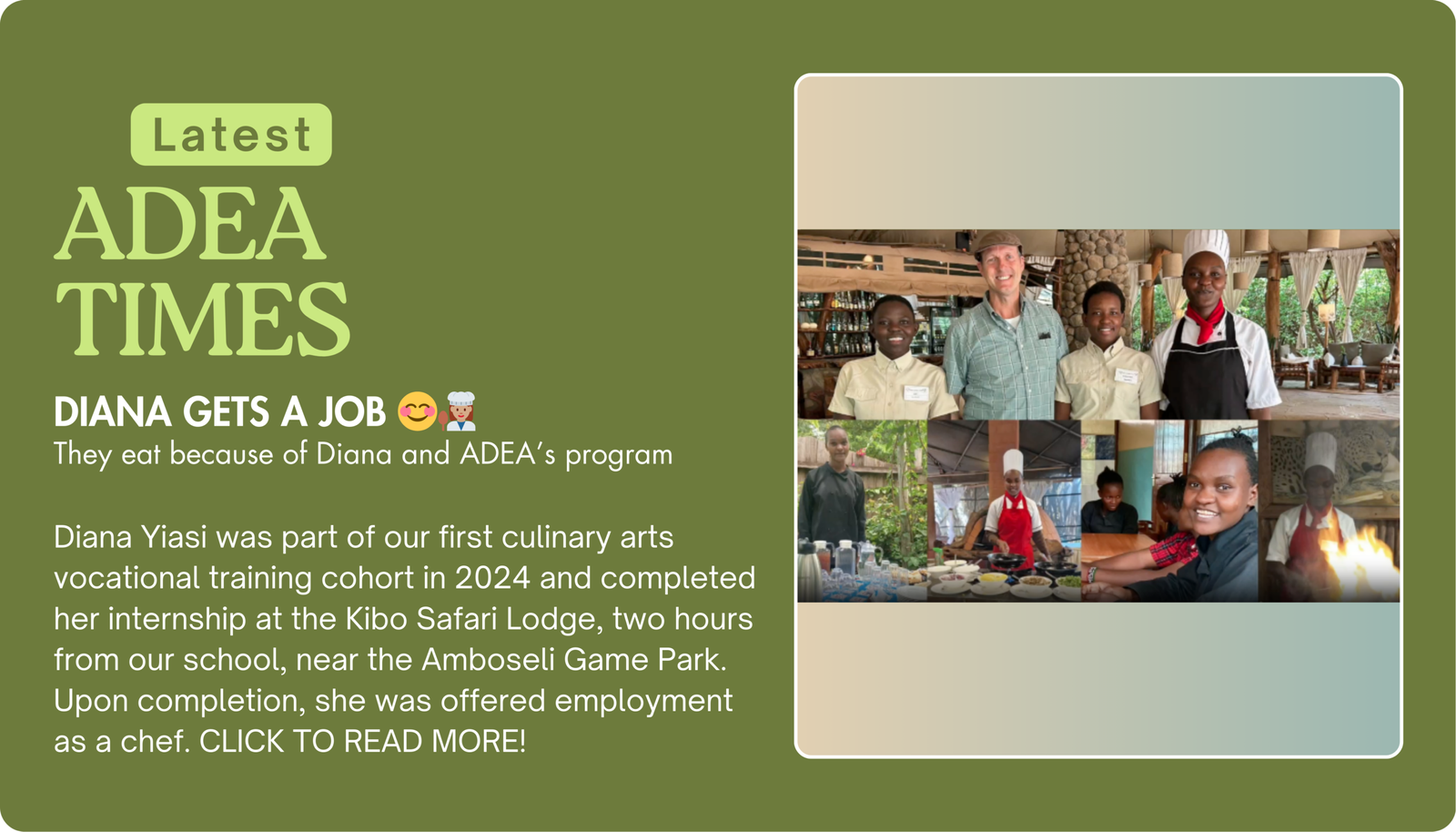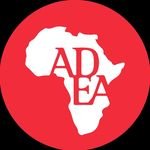2026 – HERE'S WHAT WE PLAN TO DO
LOOKING BEHIND 2024
Pillar of Maasai Development (PMD) Partnership In Kenya
The Maasai herders of Eastern Africa are possibly the most famous tribe in Africa. The Maasai of Kajado, Kenya, in Mt. Kilimanjaro's eastern shadow, lost the majority of their grazing lands and watering holes to the Tsavo Game Reserves. In the 1990s, they were expelled from these lands. Insufficient land led to overgrazing and this community's tumble into poverty. In 2003 ADEA was introduced to this community, and our partnership began.
2003 - ADEA's director, Douglas, introduced to the Maasai community of Tipape Loomu
2006 – Established Lemong'o Primary School
2008 – Established Esukuta Primary School
2009 – Supported Emergency school meal program during 2008-2009 drought (95% of cattle lost)
2012 – Ornaments for Hope women's beadwork initiative
2020 – COVID-19 Lockdown Emergency Food Distribution Program
2020 – Teacher Development Program
2020 – Food Security Maasai Small Scale Farming initiative launched.
2021 – COVID-19 Lockdown and Drought Relief Emergency Food
2023 – Began Keep Kids in School – school fee support (KKIS)
2024 - Post high school Vocational training offered


